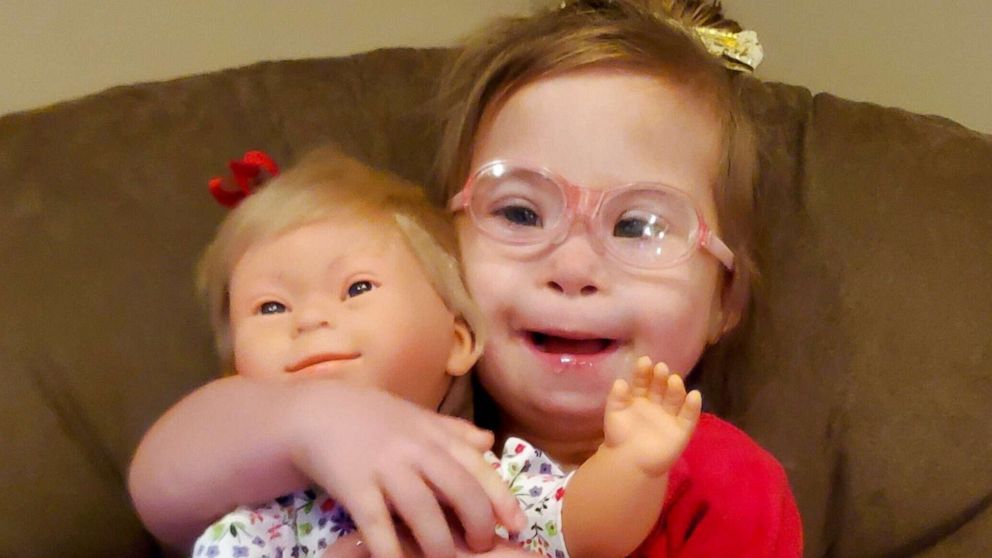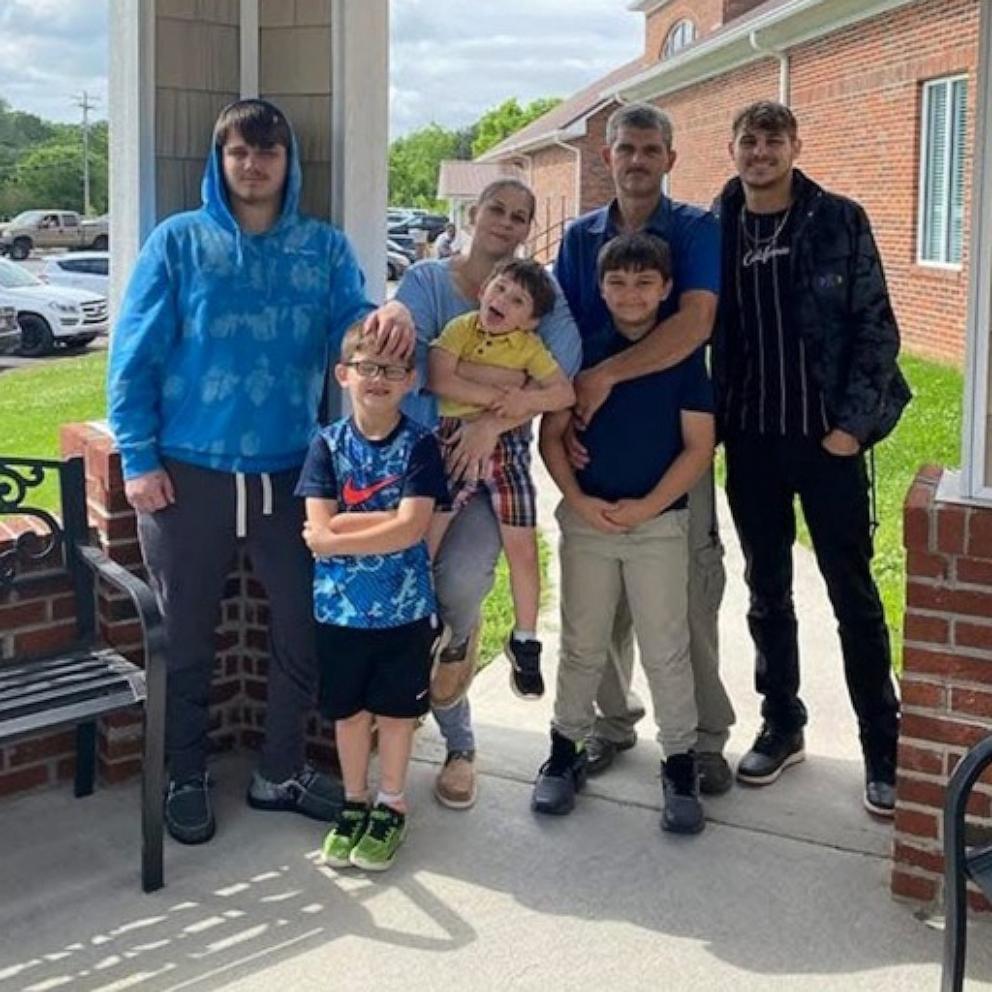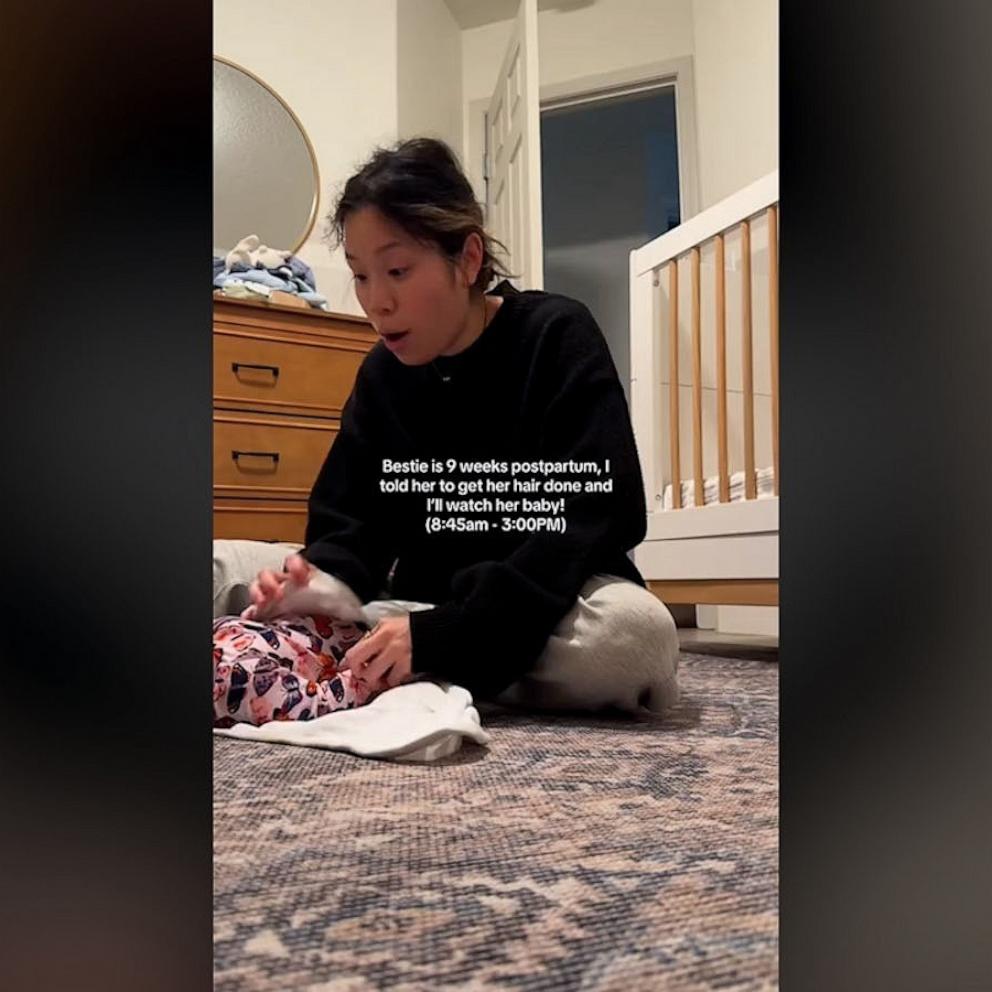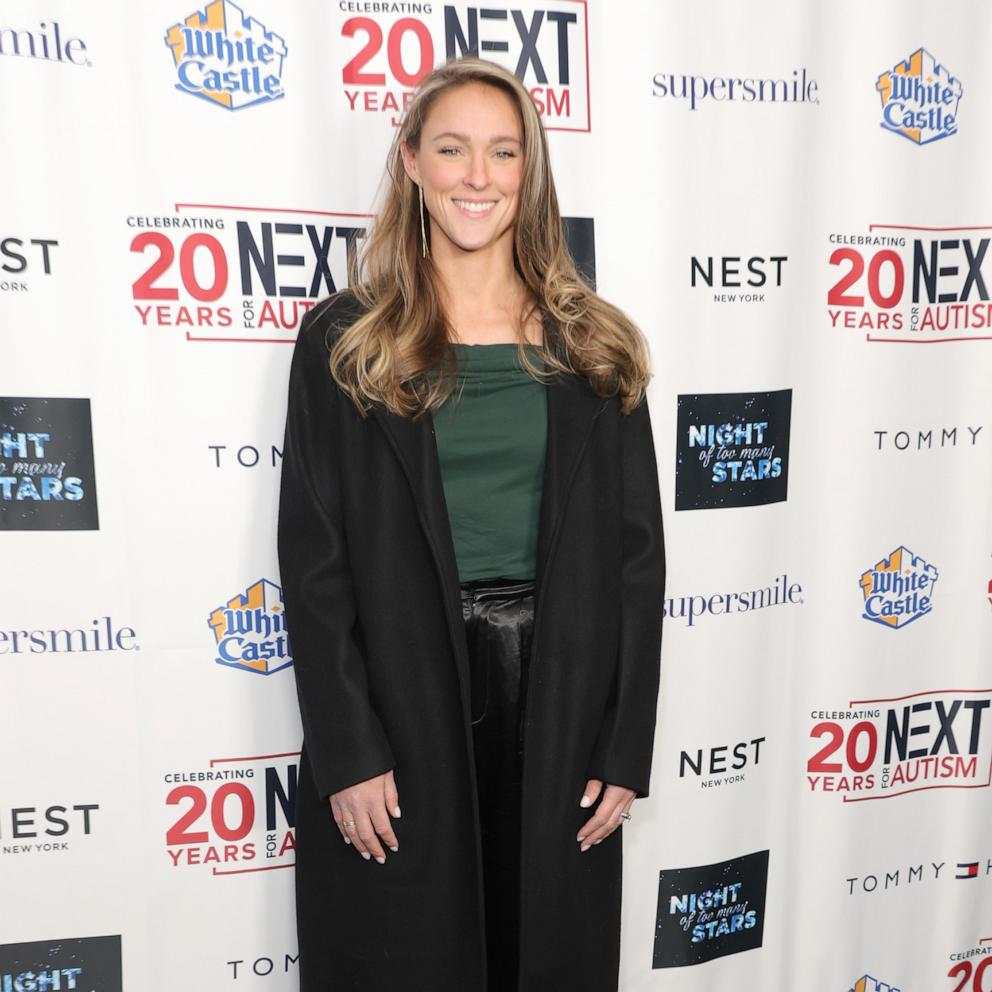Mom's post about dolls with disabilities shows why 'representation matters'

Representation matters.
That's the reason behind one mom's viral post about dolls with disabilities. Her daughter, Ivy, has Down syndrome and now has a doll that looks just like her.
Lindsay Filcik told "Good Morning America" she believes it is important for children with disabilities to see themselves represented in the toys they play with.
Her post has nearly 18,000 likes so far. She wrote in part, "Every single human being deserves to see somebody who looks like them in movies, books, commercials, and toys. Unfortunately for far too long that has not been the case. People of all races, abilities, body types, genders, religions, etc. need to be represented in what we watch, read, and play with. Recently we are seeing steps to remedy this problem in the media and I appreciate that! Representation matters!"
She continued: "Imagine being a child with a disability and all you ever see are typical, able bodied children. What message does that send you about yourself? That you are ‘abnormal’. That you are not worthy of being shown to the world. I know you’re reading this cringing inside, because of course no child should ever be made to feel that way. Lack of representation also hurts those children who are represented. They grow up with the incredibly skewed perception that everybody looks like them. And anybody who doesn’t isn’t ‘normal’ and should be feared. That my friends is how racism and ableism can be perpetuated in our kids without us even realizing it. Representation matters!"
The Grand Rapids, Michigan, mom's post includes two other girls playing with dolls who have disabilities similar to their own.
She wrote, "Look at these beautiful girls. Each one is represented by a doll that looks like them. Ivy has Down syndrome. Her doll looks just like her with almond shaped eyes and a button nose! Our friend Eliza has Spina Bifida. Her doll has forearm crutches (or sticks as Eliza says) & AFOs just like her! Our friend Stella has Spinal Muscular Atrophy. Her doll has a wheelchair just like her! Representation matters! "
Filick told "GMA" the post has been well received by parents of both disabled and non-disabled kids. "Several parents of children who don't have disabilities told me they are adding a doll with a disability to their kids' Christmas lists," she said. "They had just never thought of it before."




